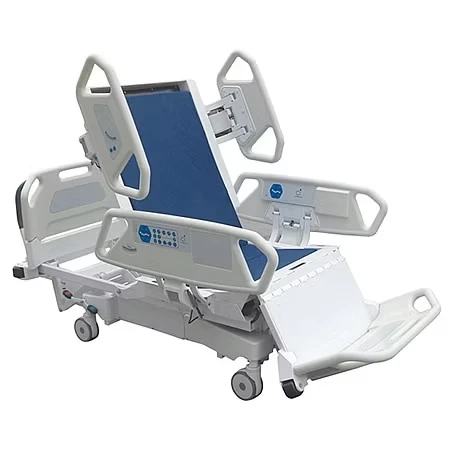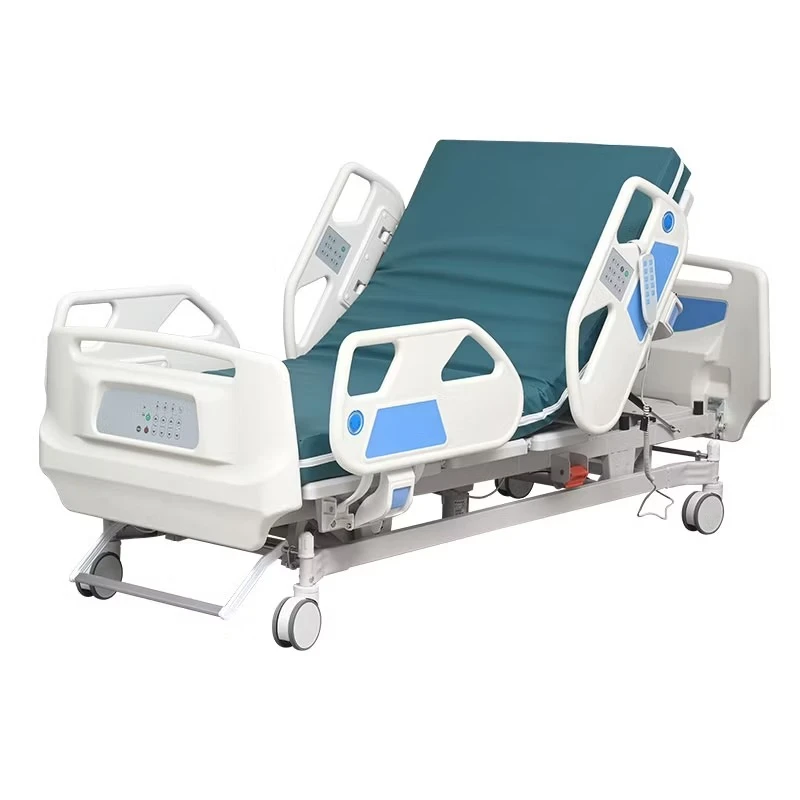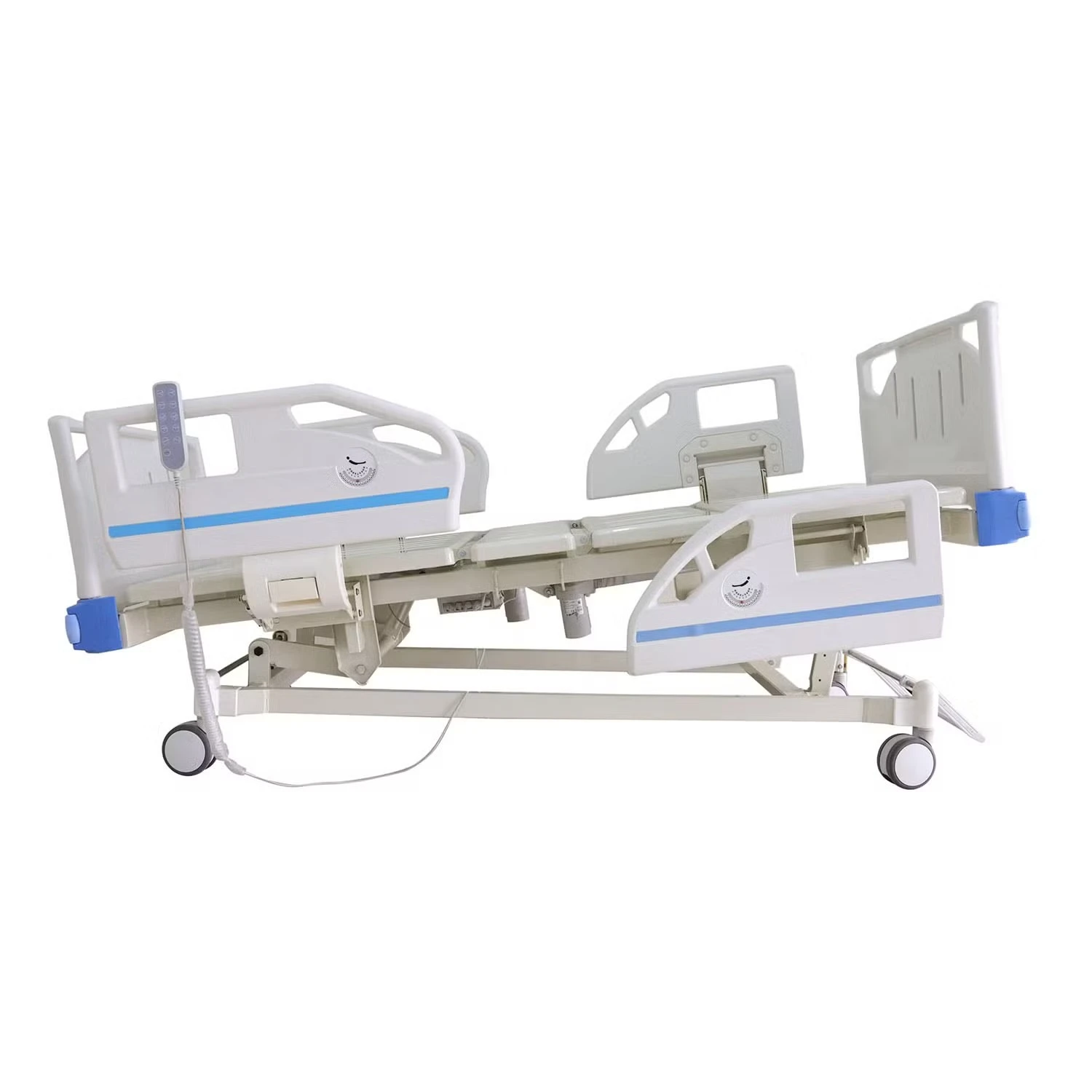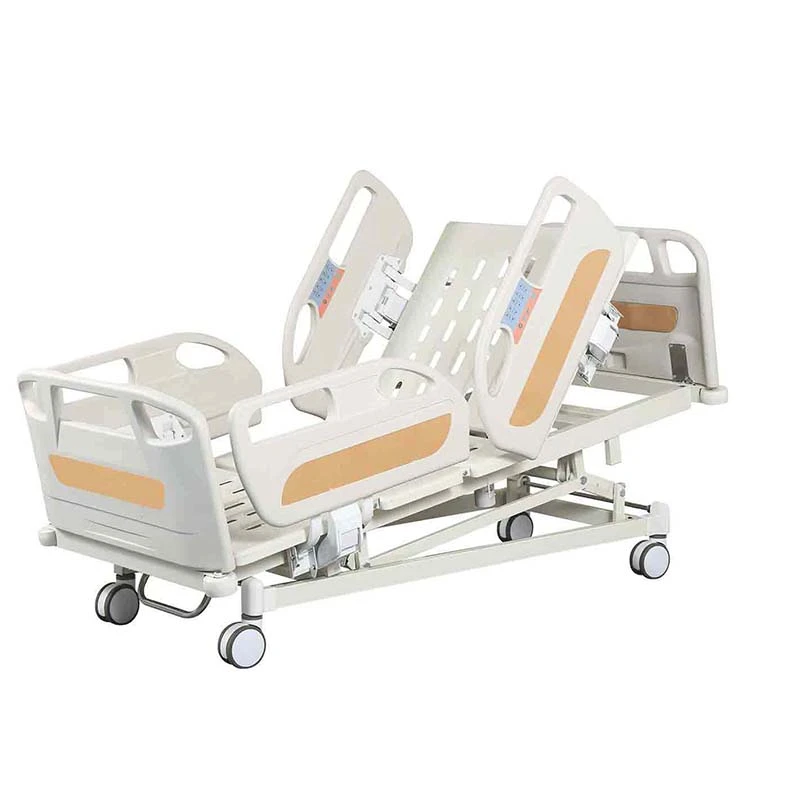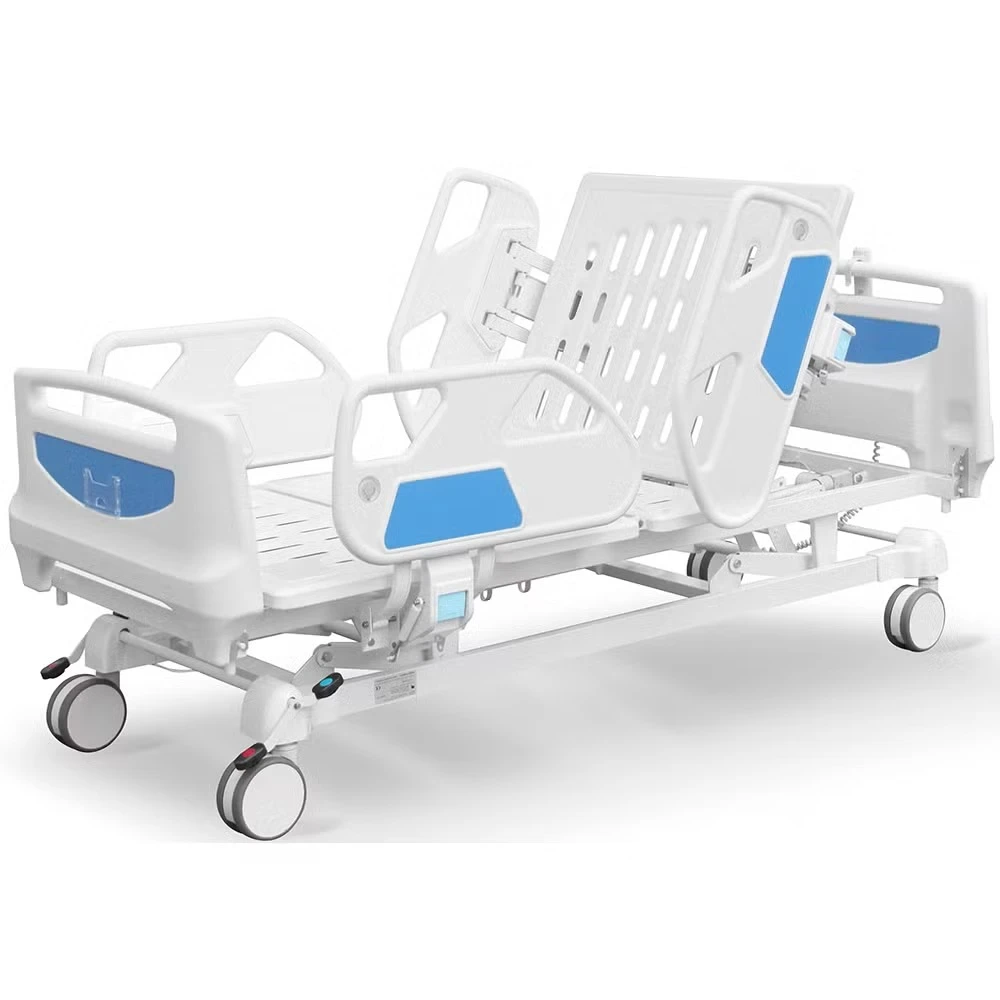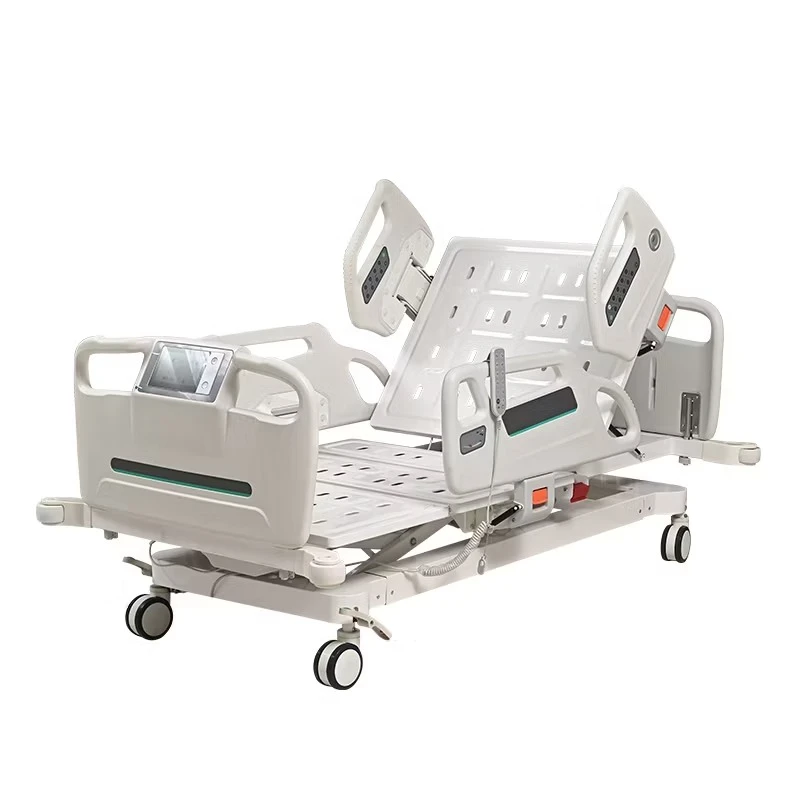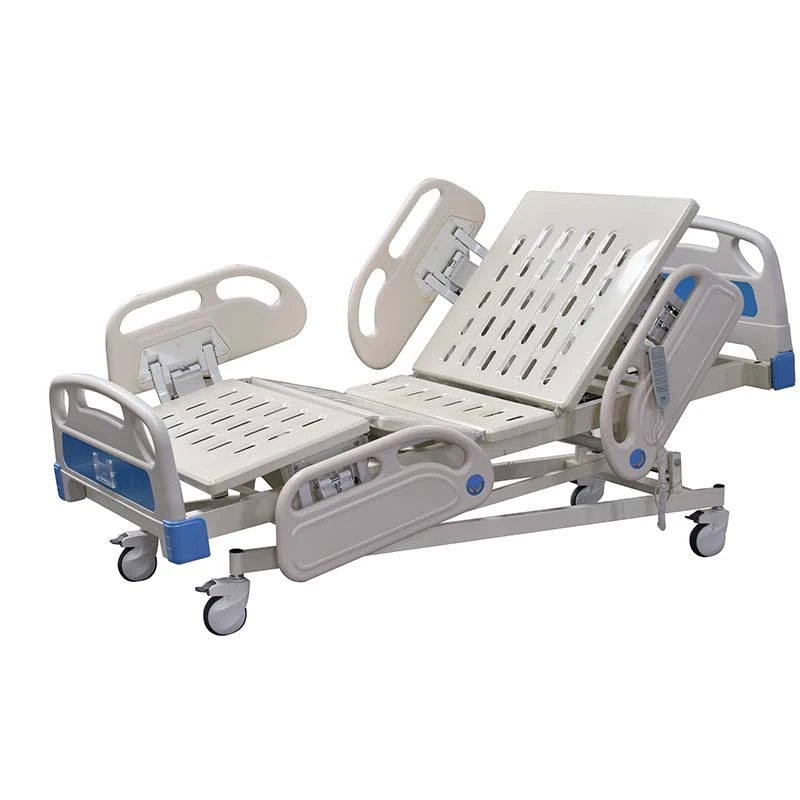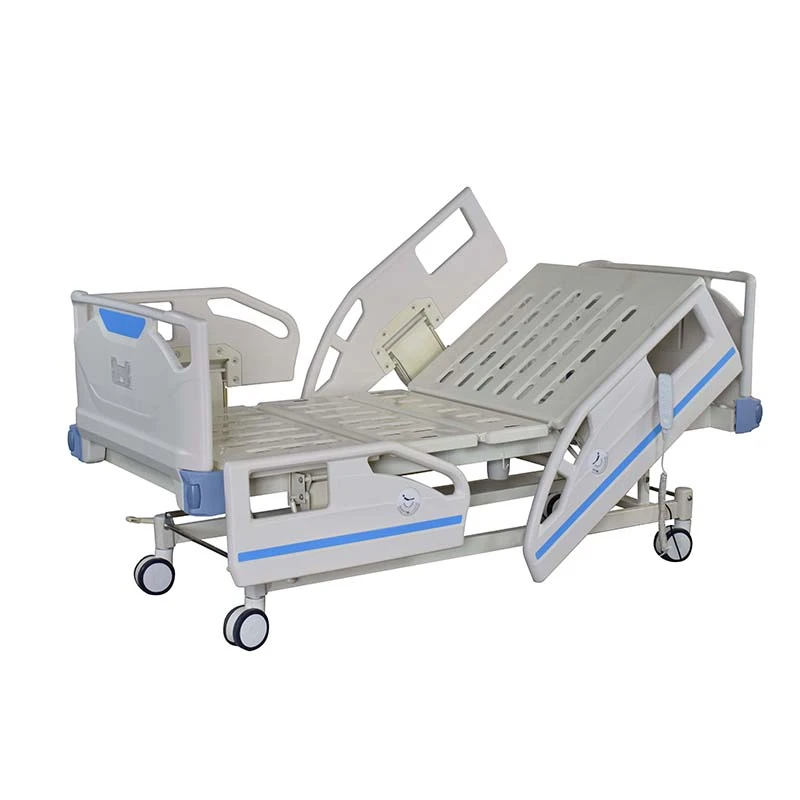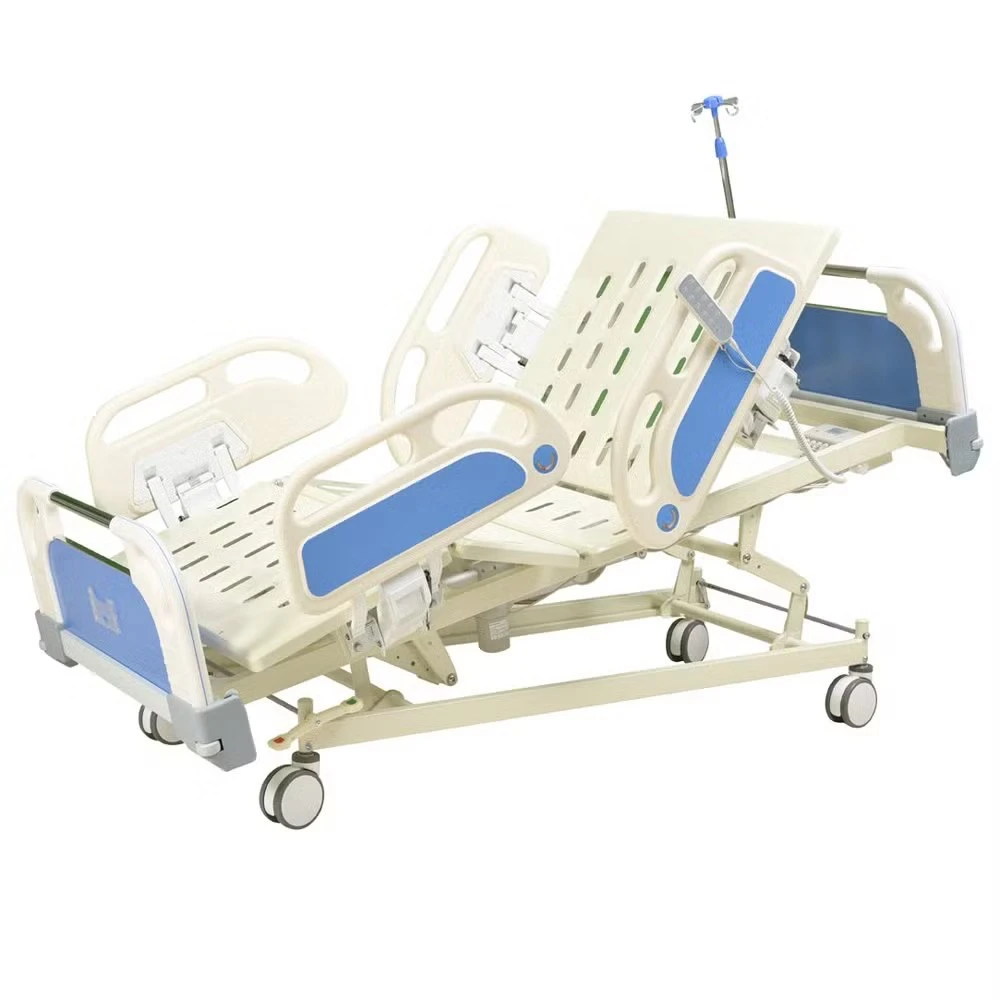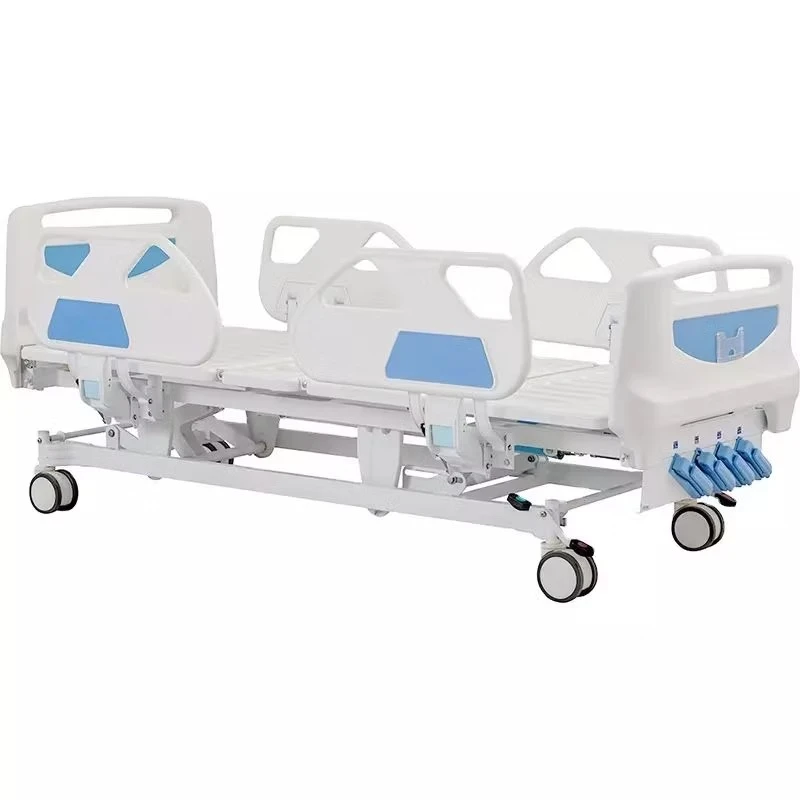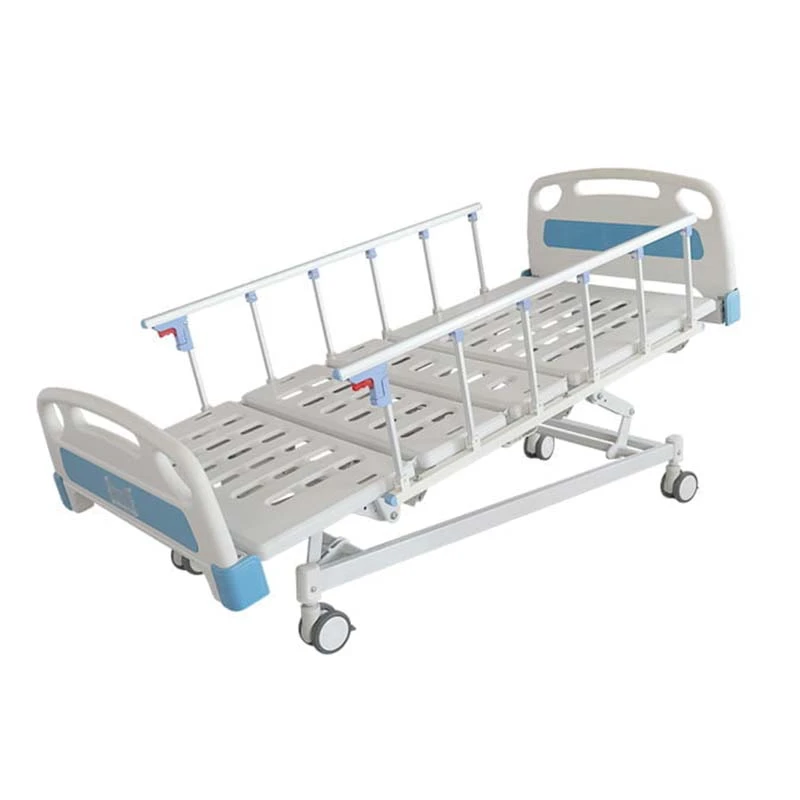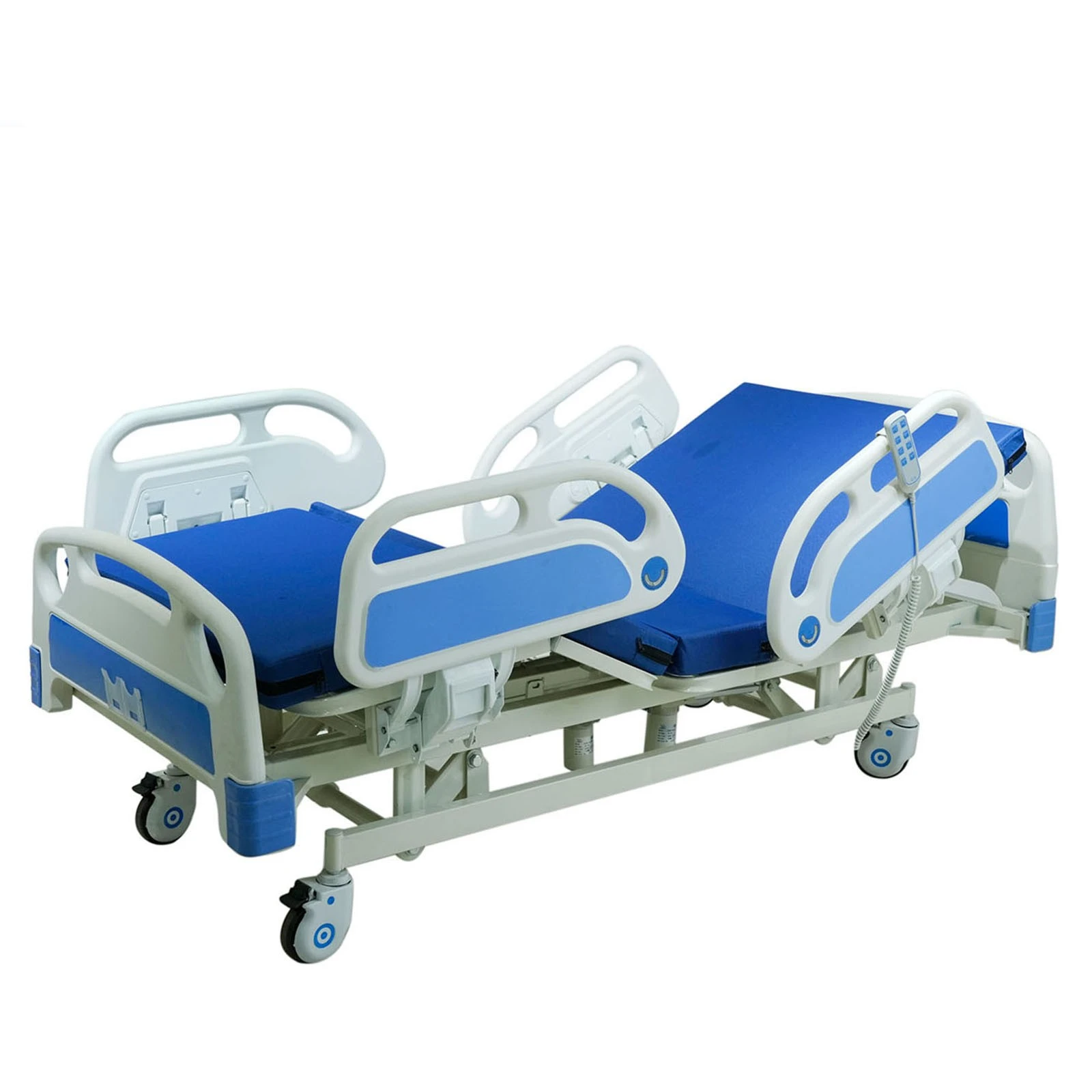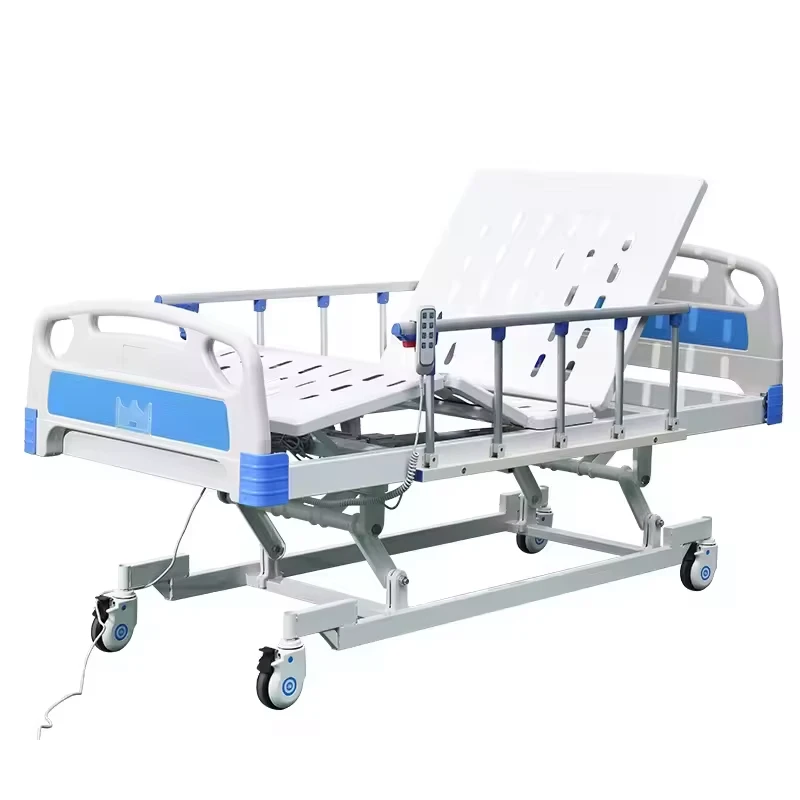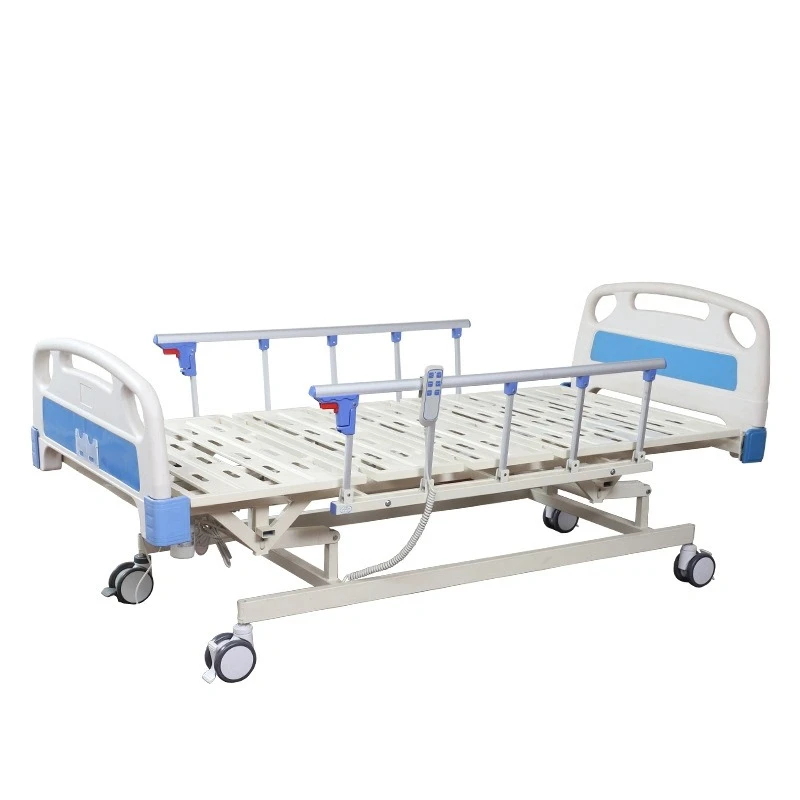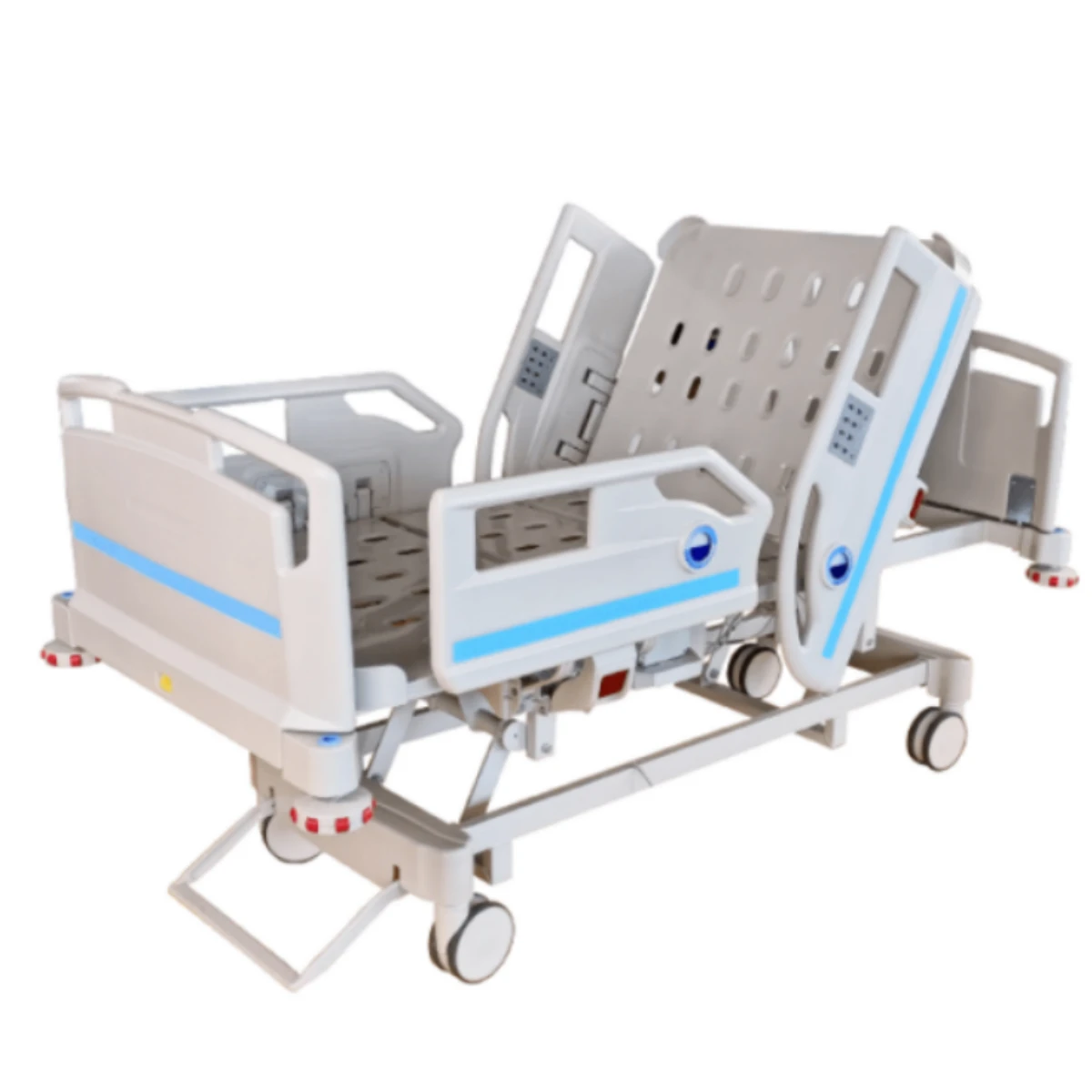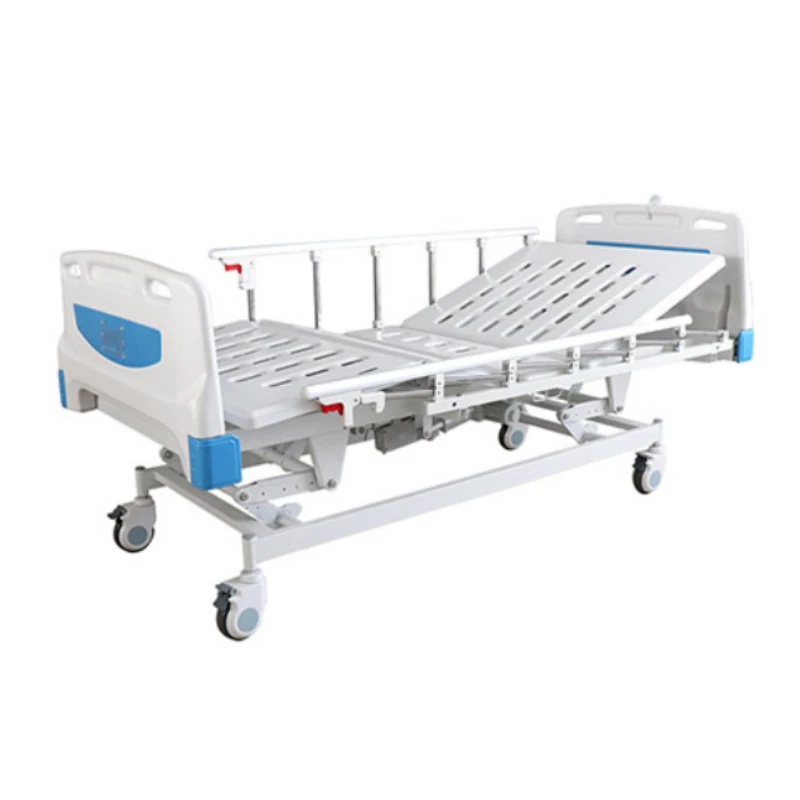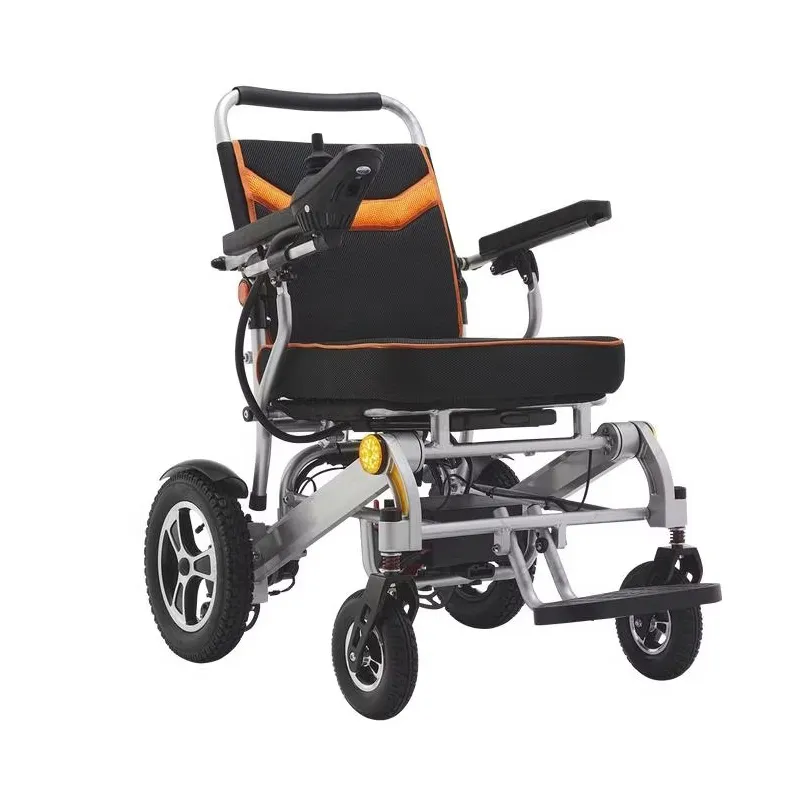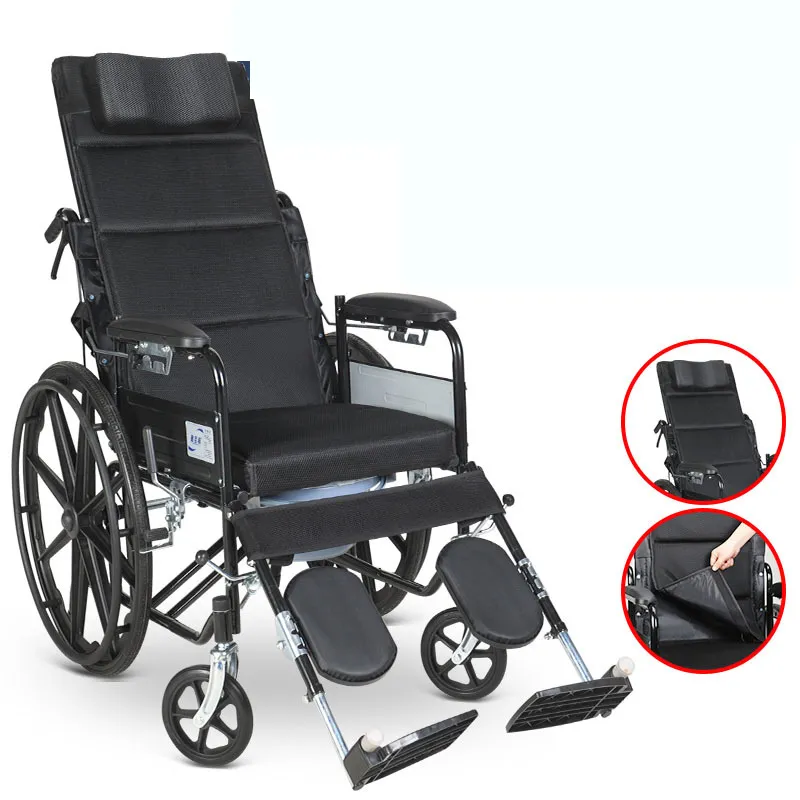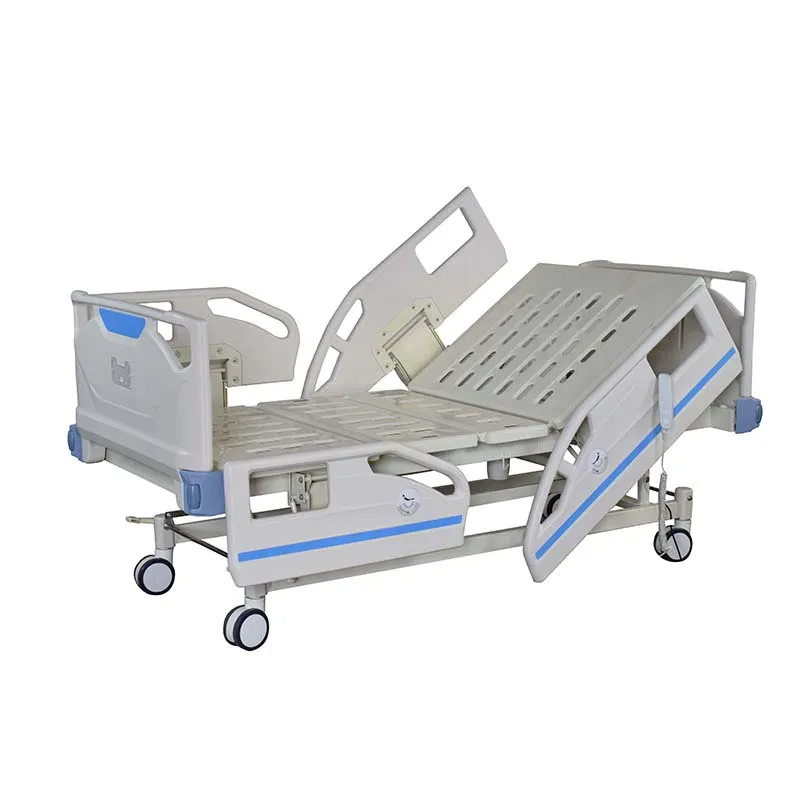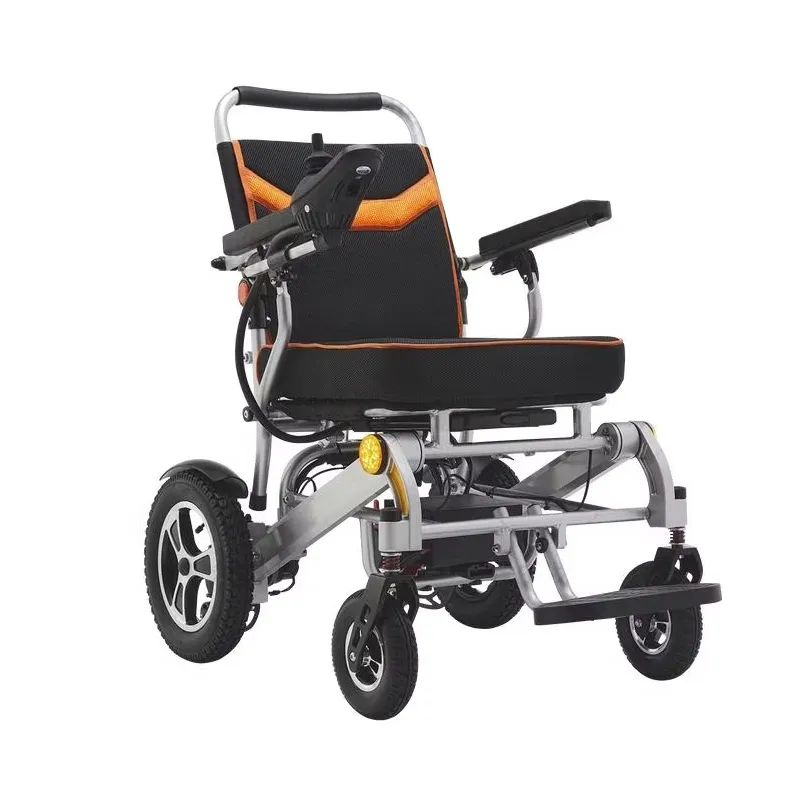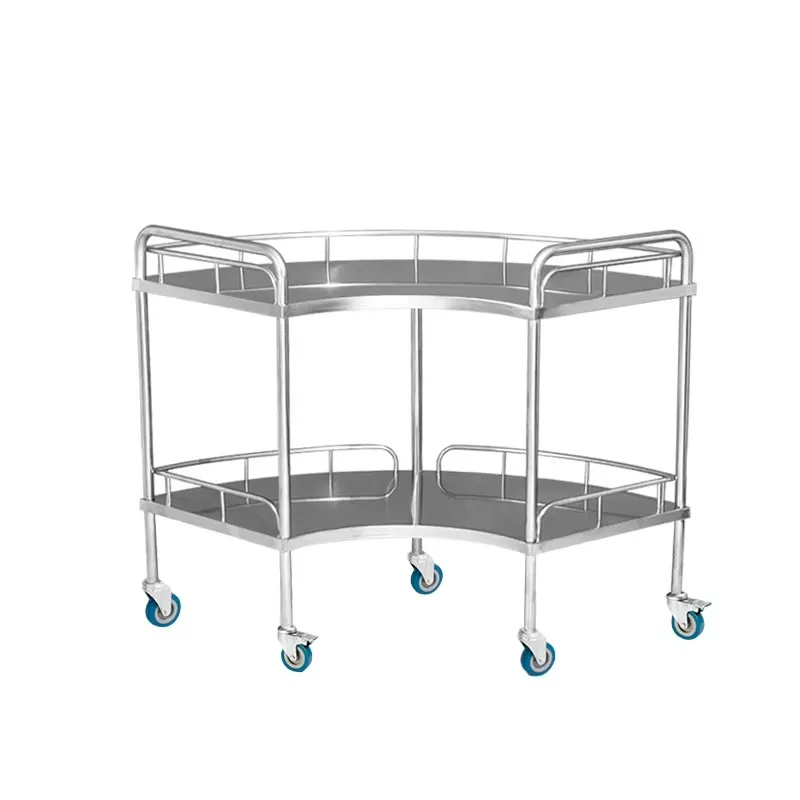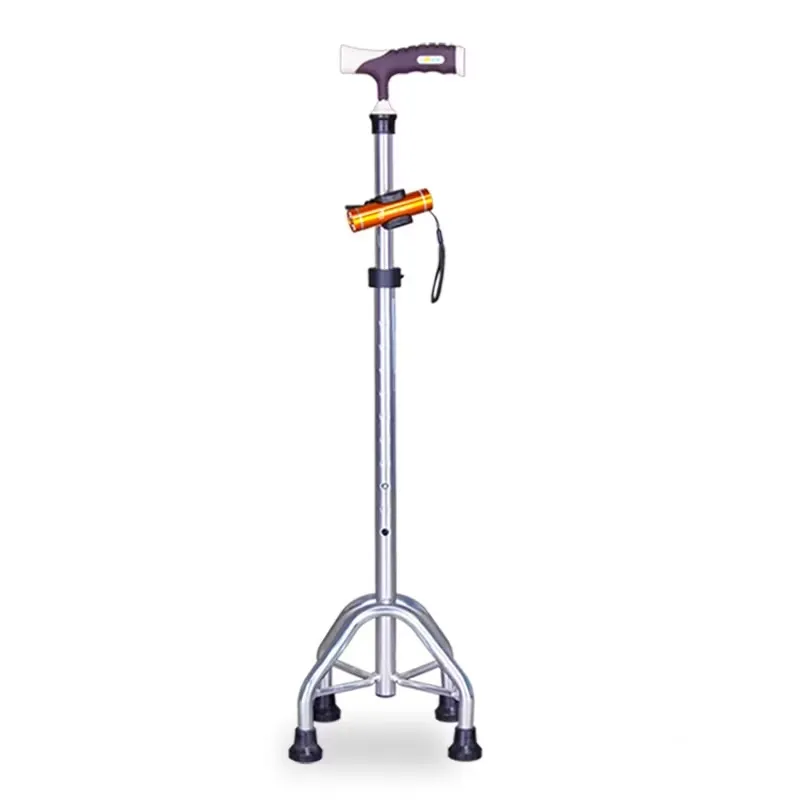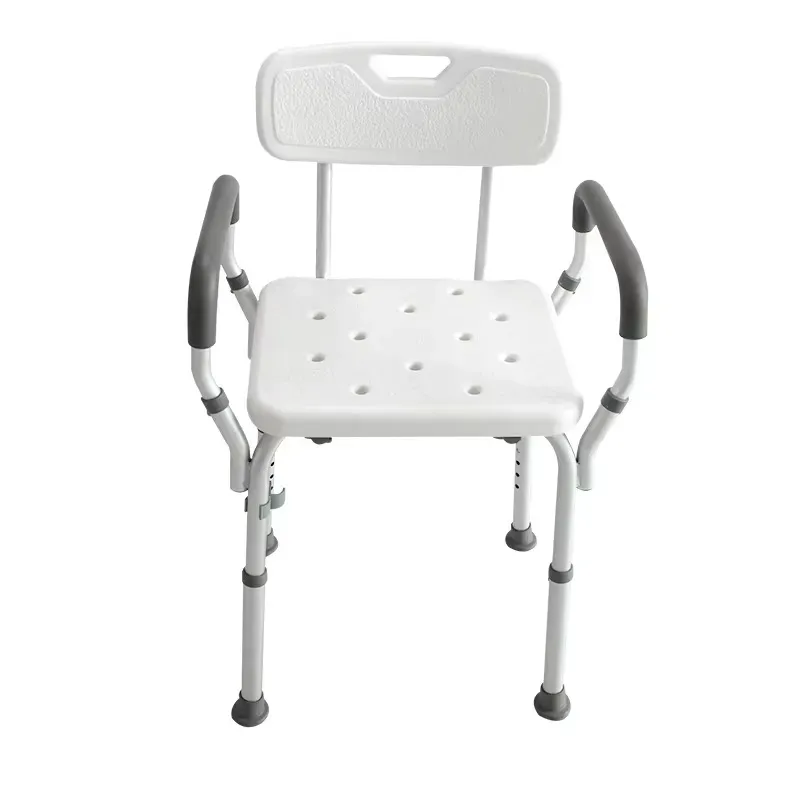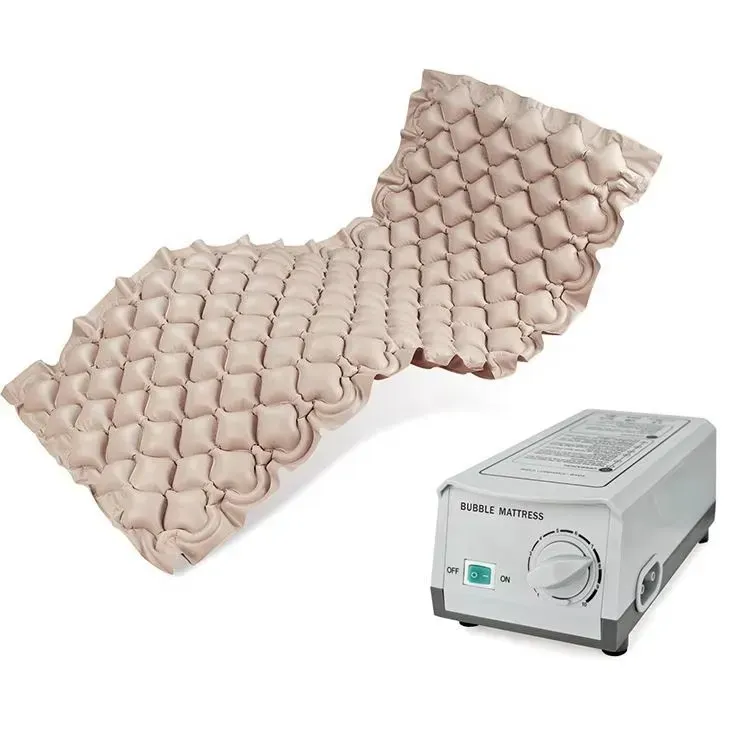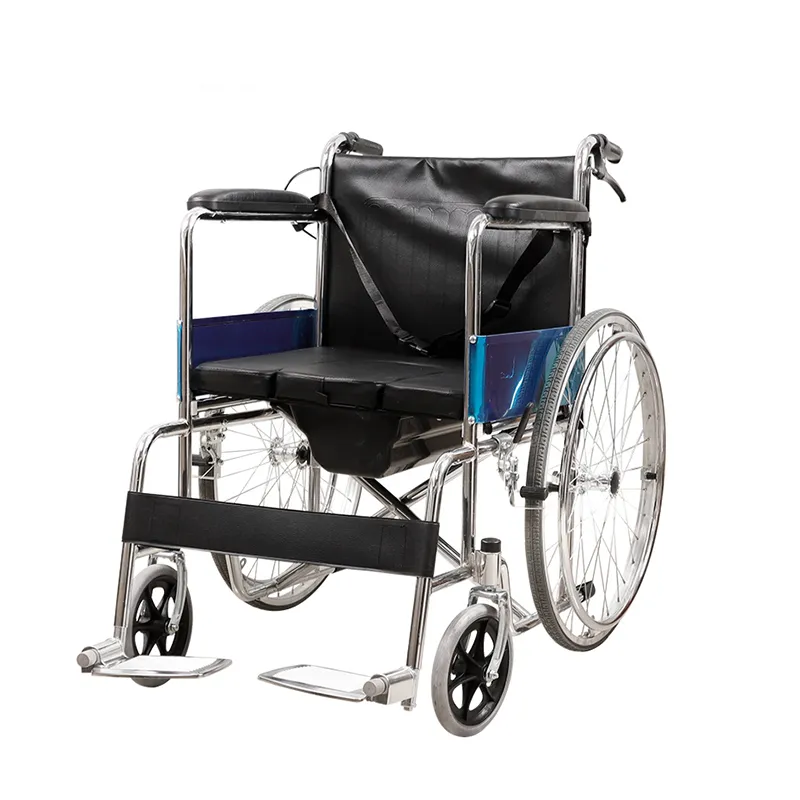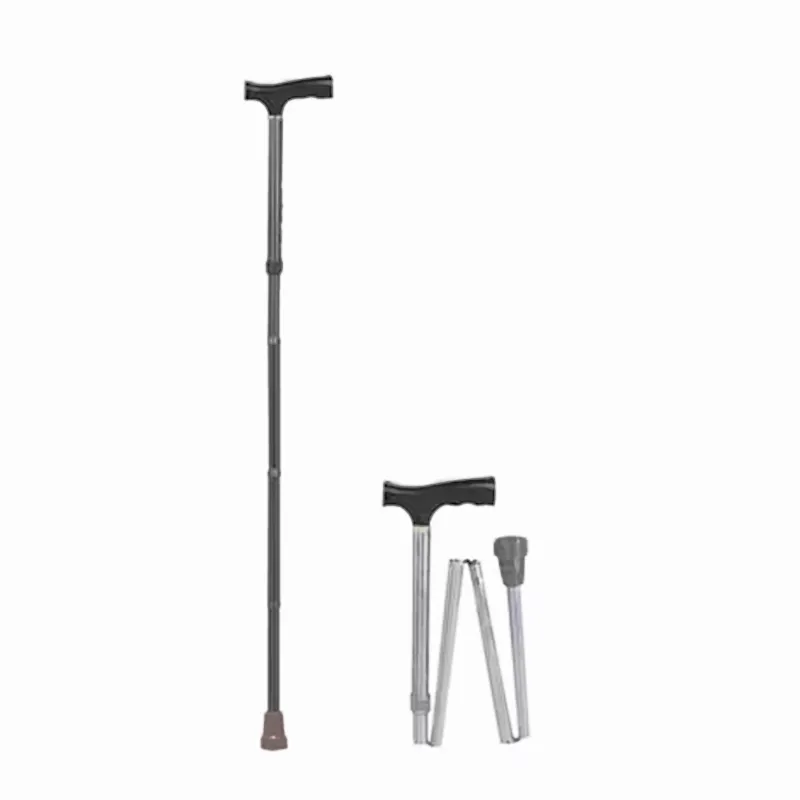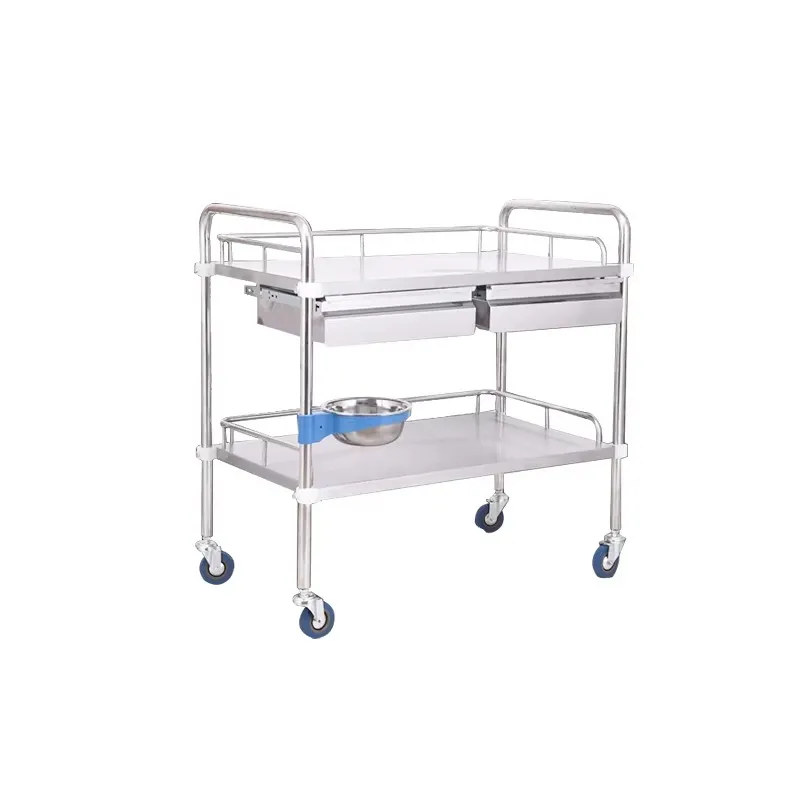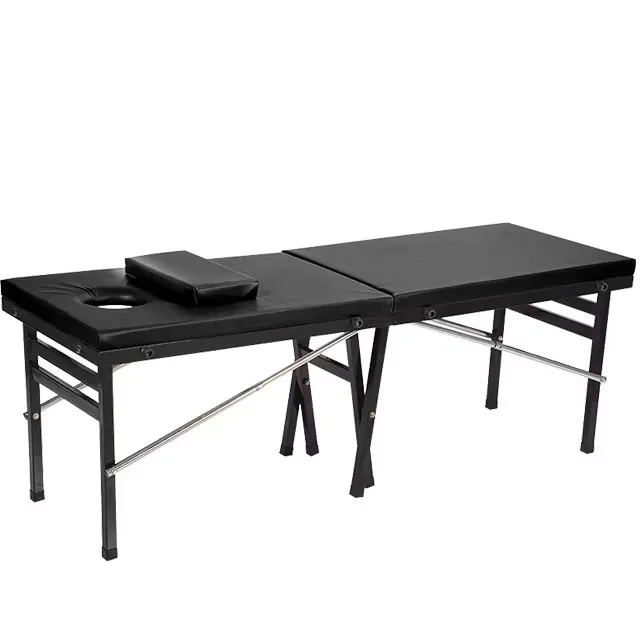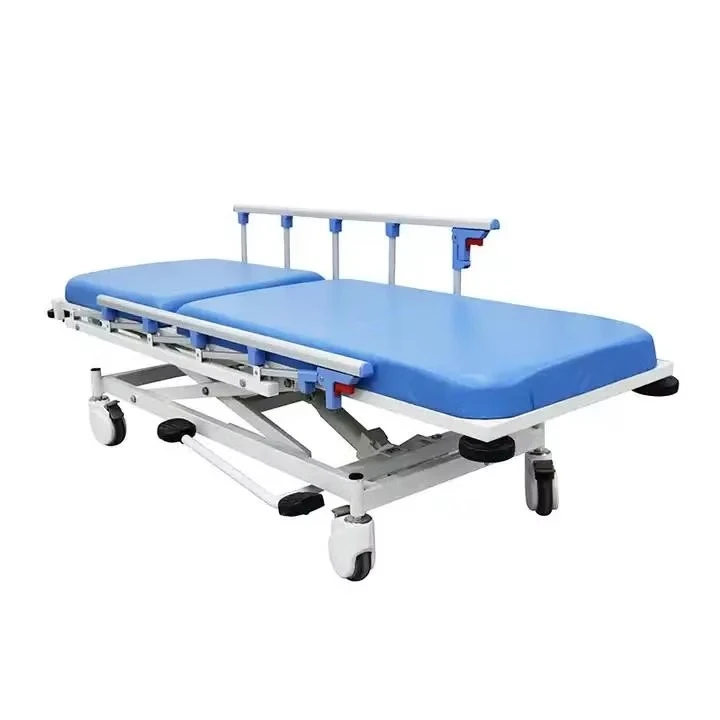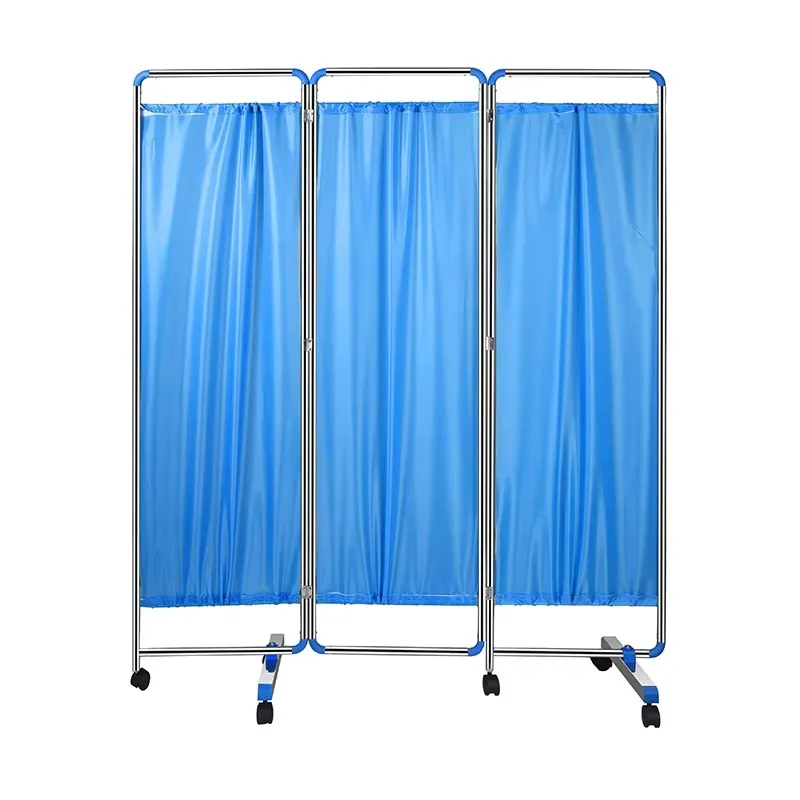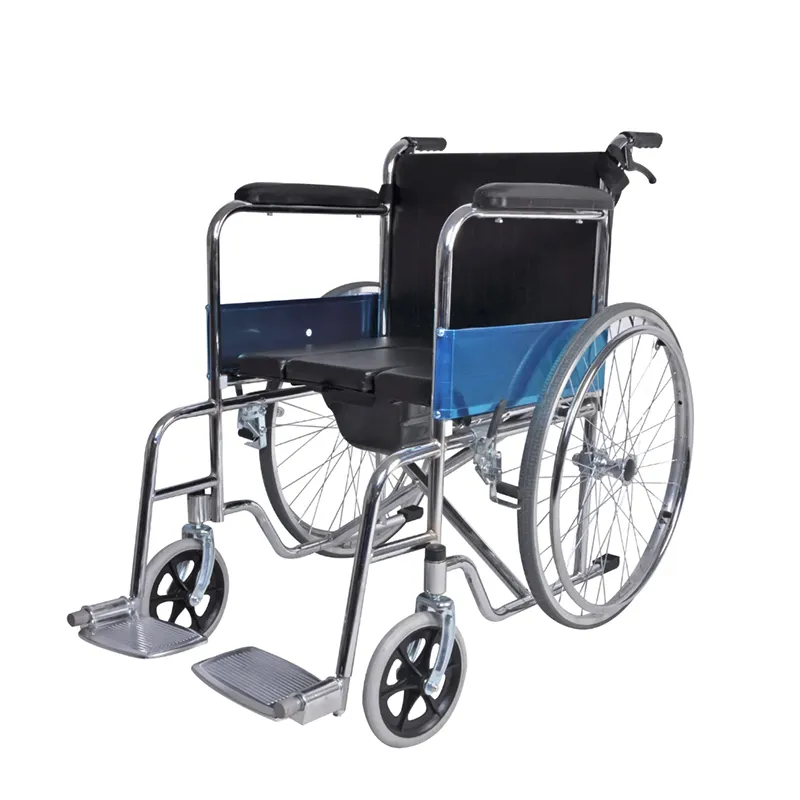Advanced ICU Hospital Bed: Superior Comfort & Patient Safety
The Pivotal Role of Advanced ICU Hospital Beds in Modern Critical Care
In the demanding environment of intensive care units (ICUs), the equipment utilized plays a critical role in patient recovery and caregiver efficiency. Central to this is the icu hospital bed, a sophisticated medical device engineered to provide optimal patient support, facilitate intricate medical procedures, and enhance safety protocols. These beds are not merely resting places but integrated systems designed to manage the complex needs of critically ill patients, offering functionalities that range from precise positioning to advanced monitoring capabilities. Understanding the technical specifications, application advantages, and comprehensive lifecycle of these essential devices is paramount for healthcare procurement professionals and facility managers.
Industry Trends and Market Dynamics for Advanced Critical Care Beds
The market for icu hospital bed systems is experiencing significant evolution, driven by several key trends. Globally, an aging population, increasing prevalence of chronic diseases, and a heightened focus on patient safety and infection control are fueling demand. Technological advancements are leading to more intelligent beds equipped with integrated sensors for vital sign monitoring, weight scales, fall prevention alarms, and even automated turning systems to prevent pressure ulcers. The emphasis is shifting towards user-centric design that improves both patient comfort and caregiver ergonomics. Furthermore, the rising awareness of the long-term impact of patient immobilization has spurred innovations in continuous lateral rotation therapy and early mobilization features integrated directly into the bed frame. Regulatory compliance, particularly with standards like ISO 13485 and FDA guidelines, remains a critical factor influencing product development and market entry. The competitive landscape necessitates vendors to offer not just robust products but also comprehensive service, maintenance, and training packages to address the intricate needs of modern ICUs.
Technical Specifications: Hospital Equipment Three-Functional Electric Medical Bed
Our "Hospital equipment three-functional electric medical bed" represents a pinnacle of design and functionality, engineered specifically for intensive care and high-acuity settings. This electric medical bed integrates core functions essential for patient care, mobility, and safety, making it an ideal icu hospital bed solution.
| Feature | Specification |
|---|---|
| Overall Dimensions | Typically 2150mm (L) x 980mm (W) x 480-720mm (H) (Adjustable) |
| Bed Surface Dimensions | 1950mm (L) x 900mm (W) |
| Functions | Backrest adjustment (0-80°), Legrest adjustment (0-45°), Height adjustment (480-720mm) |
| Actuator System | Advanced Electric Motors (e.g., Linak, Timotion) with quiet operation |
| Control System | Hand controller, Nurse control panel on footboard, CPR quick release function |
| Material (Bed Frame) | High-strength cold-rolled steel, epoxy powder coated for anti-corrosion |
| Material (Head/Foot Boards) | Detachable ABS plastic, blow-molded for durability and easy cleaning |
| Side Rails | Collapsible/Split type ABS side rails with safety lock |
| Casters | 125mm diameter silent casters with central braking system |
| Weight Capacity | ≥250kg (Safe working load) |
| Certifications | ISO 13485, CE, FDA (pending/optional) |
The Manufacturing Process of a High-Quality ICU Hospital Bed
The production of a high-performance icu hospital bed involves a meticulous, multi-stage manufacturing process that prioritizes precision, durability, and patient safety. Each step adheres to stringent quality control protocols, often aligned with international standards such as ISO 13485 for medical devices.
Manufacturing Process Flow for ICU Hospital Beds
- Material Selection & Sourcing: High-grade cold-rolled steel for the bed frame and patient support platforms, ensuring structural integrity and longevity (service life typically 10-15 years). Medical-grade ABS plastics are chosen for head/footboards and side rails, known for ease of cleaning, impact resistance, and anti-bacterial properties. Electric motors and control systems are sourced from reputable suppliers (e.g., Linak, Timotion) for reliability and quiet operation.
- Frame Fabrication (Cutting, Bending, Welding): Steel sheets and tubes are precisely cut using CNC laser or plasma cutting machines to ensure accurate dimensions. These components then undergo hydraulic bending and forming to create the bed's structural elements. Welding, primarily MIG/MAG welding, is performed by certified technicians, followed by visual and non-destructive testing (e.g., dye penetrant inspection) to ensure weld integrity and absence of defects.
- Surface Treatment & Coating: The steel frame undergoes a multi-stage pre-treatment process, including degreasing, phosphating, and rinsing, to prepare the surface. This is followed by electrostatic epoxy powder coating, applied uniformly and cured at high temperatures. This finish provides superior corrosion resistance, chemical resistance, and an easy-to-clean, aesthetically pleasing surface, crucial for maintaining hygiene in medical environments.
- Component Manufacturing (Plastics & Machined Parts): ABS components (head/footboards, side rails) are typically blow-molded or injection-molded, ensuring consistent quality and design. Precision parts for joint mechanisms and castor housings may be produced via CNC machining from solid blocks of steel or aluminum, guaranteeing exact tolerances and smooth operation.
- Assembly & Integration: The various sub-assemblies (frame, patient platform sections, electric motors, control boxes, casters, side rails, head/footboards) are meticulously assembled. Electrical wiring is carefully routed and connected, adhering to electrical safety standards (e.g., IEC 60601-1). This stage often involves detailed visual inspections and functional checks.
- Testing & Quality Control: Each finished icu hospital bed undergoes rigorous testing. This includes functional testing of all electric movements (backrest, legrest, height adjustment), load capacity testing (static and dynamic), stability testing, electrical safety tests (leakage current, dielectric strength), and noise level assessment of motors. Compliance with standards like ISO 13485, CE marking requirements, and potentially FDA regulations is verified. ANSI/AAMI testing for specific performance metrics might also be applied.
- Final Inspection & Packaging: A final quality inspection ensures aesthetic perfection and operational readiness. Beds are then carefully packaged, often with protective wrapping and robust cardboard or wooden crates, to prevent damage during shipping to healthcare facilities worldwide.
This comprehensive process ensures that each icu hospital bed not only meets but often exceeds industry benchmarks for safety, functionality, and longevity. The emphasis on high-quality materials and precision manufacturing translates into reliable equipment that supports critical patient care effectively.
Application Scenarios and Target Industries
The versatility and advanced features of modern icu hospital bed solutions make them indispensable across various critical care and medical environments. Their design caters to diverse patient needs and operational demands.
- Intensive Care Units (ICUs) and Critical Care Units (CCUs): This is the primary application, where beds support patients requiring constant monitoring, advanced life support, and frequent repositioning. Features like trendelenburg/reverse trendelenburg, cardiac chair position, and integrated scales are crucial here.
- Emergency Departments (EDs): High-acuity beds are used for patient stabilization and monitoring before admission to an ICU or general ward. Quick maneuverability and robust construction are key.
- Post-Anesthesia Care Units (PACUs): Beds facilitate patient recovery from surgery, allowing for safe positioning and observation during the initial post-operative phase.
- Long-Term Acute Care (LTAC) Hospitals: For patients requiring extended critical care or complex medical management, these beds offer durability and advanced features over prolonged periods.
- Select Home Healthcare Settings: In cases of chronic critical illness, a sophisticated electric medical bed might be deployed in a home setting, enabling high-level care outside the traditional hospital environment.
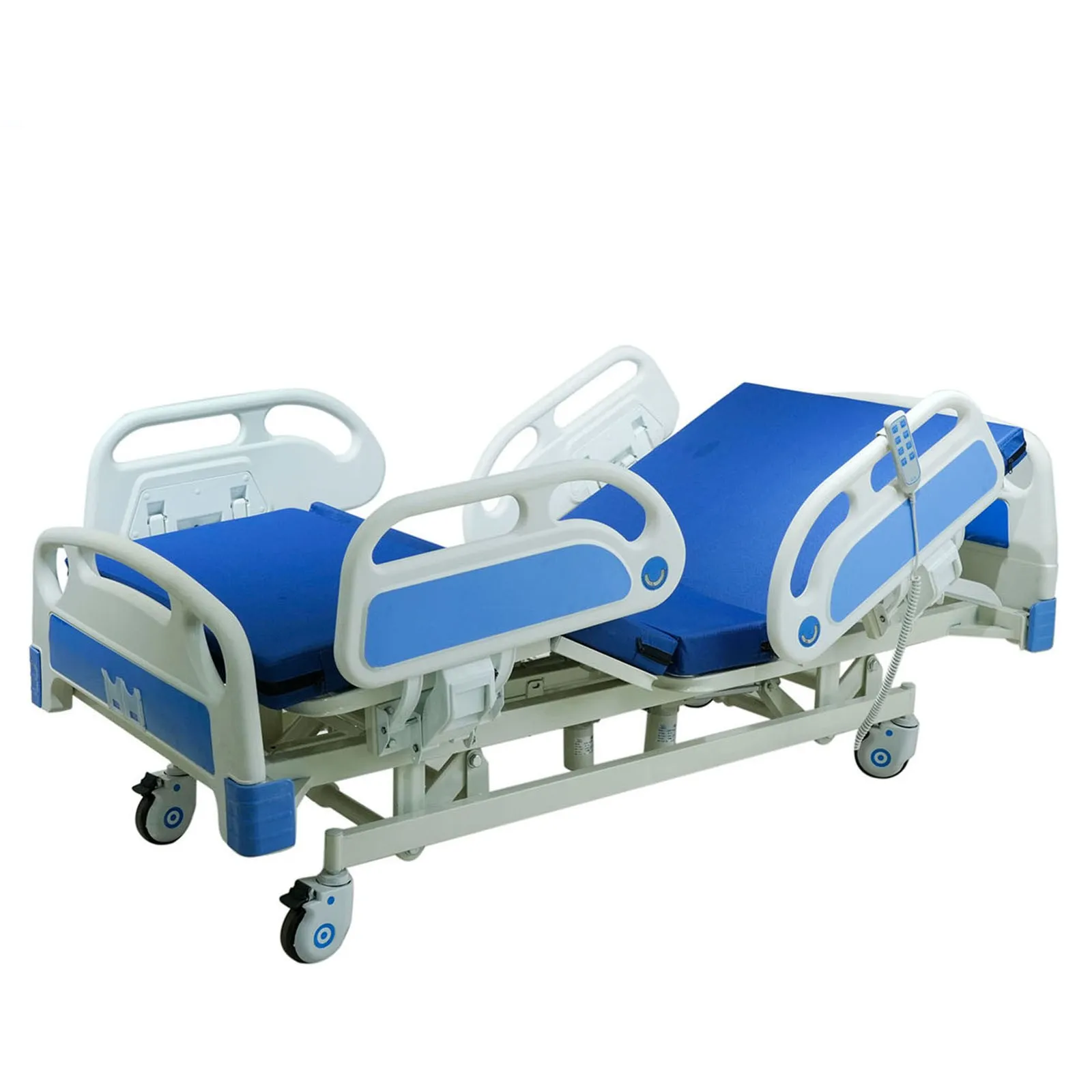
The adaptability of these beds, combined with their robust construction and integrated safety features, makes them indispensable assets in any facility focused on delivering high-quality, patient-centered care.
Technical Advantages for Enhanced Patient Outcomes and Operational Efficiency
Investing in an advanced icu hospital bed offers substantial technical advantages that directly translate into improved patient outcomes and streamlined operational workflows for healthcare providers.
- Precision Patient Positioning: Electric articulation of backrest, legrest, and height allows for minute adjustments, optimizing respiratory function, reducing aspiration risk, and improving patient comfort. This precision is critical for managing various medical conditions.
- Enhanced Patient Safety: Features like integrated side rails with safety locks prevent accidental falls. Centralized braking systems ensure bed stability during transfers. CPR quick-release functions allow for immediate flattening of the bed during emergencies, saving critical seconds.
- Caregiver Ergonomics and Efficiency: Electric controls significantly reduce the physical strain on nurses and caregivers during patient handling, transfers, and repositioning, thereby reducing the risk of musculoskeletal injuries. Nurse control panels on the footboard offer convenient access to all bed functions.
- Infection Control: Smooth, seamless ABS surfaces for head/footboards and side rails, along with epoxy powder-coated steel frames, facilitate easy cleaning and disinfection. This minimizes potential sites for pathogen accumulation, crucial in an ICU environment.
- Durability and Longevity: Constructed with high-strength materials and robust electric motors, these beds are designed for continuous, heavy-duty use in demanding environments, ensuring a long service life and a high return on investment.
- Integrated Features: Modern beds often incorporate features like integrated patient scales, under-bed lighting, and alarm systems, reducing the need for separate equipment and simplifying workflow.
Vendor Comparison: Evaluating ICU Hospital Bed Providers
When sourcing an icu hospital bed, healthcare organizations must conduct a thorough vendor comparison to ensure they acquire equipment that meets their specific clinical, operational, and budgetary requirements. Factors such as initial icu hospital bed cost, long-term maintenance, and after-sales support significantly influence the total cost of ownership.
| Feature/Criterion | Vendor A (Our Product - Exemplary) | Vendor B (Competitor) |
|---|---|---|
| Product Quality & Materials | High-grade cold-rolled steel, medical-grade ABS, renowned motor brands (Linak/Timotion) | Standard steel, recycled plastics, generic motors |
| Certifications | ISO 13485, CE. Commitment to international standards. | Local certifications, limited international compliance |
| Key Functions | Electric backrest, legrest, height adjustment. CPR quick release. | Basic electric functions, fewer safety features |
| After-Sales Support | Comprehensive warranty, readily available spare parts, technical support, training. | Limited warranty, often slow or unavailable spare parts |
| Customization Options | Flexible customization for specific hospital requirements. | Minimal to no customization. |
| Total Cost of Ownership | Competitive icu hospital bed price, excellent durability leading to lower long-term costs. | Lower initial icu hospital bed cost, but high maintenance/replacement costs. |
While some vendors might offer a lower initial icu hospital bed price, it is crucial to consider the total cost of ownership, which includes maintenance, spare parts availability, and the anticipated service life. Superior products ensure long-term reliability and reduced operational disruptions. When evaluating an icu hospital bed for sale, these elements are paramount.
Customized Solutions for Unique Healthcare Environments
Recognizing that every healthcare facility has unique requirements, we offer customized solutions for our icu hospital bed range. This flexibility allows institutions to tailor features to their specific clinical protocols, patient demographics, and infrastructure. Customization options may include:
- Dimensions and Weight Capacity: Adjustments to bed length, width, or reinforced frames for bariatric patients.
- Integrated Accessories: Options for IV poles, oxygen tank holders, patient lifting pole mounts, and specialized mattress compatibility.
- Control Panel Features: Specific programming for preset positions (e.g., cardiac chair, vascular, Fowler's) or integration with hospital information systems.
- Aesthetic and Material Choices: Custom colors for head/footboards, or specific anti-microbial material treatments beyond standard.
- Advanced Mobility Solutions: Specialized castor configurations for enhanced maneuverability in confined spaces or specific floor types.
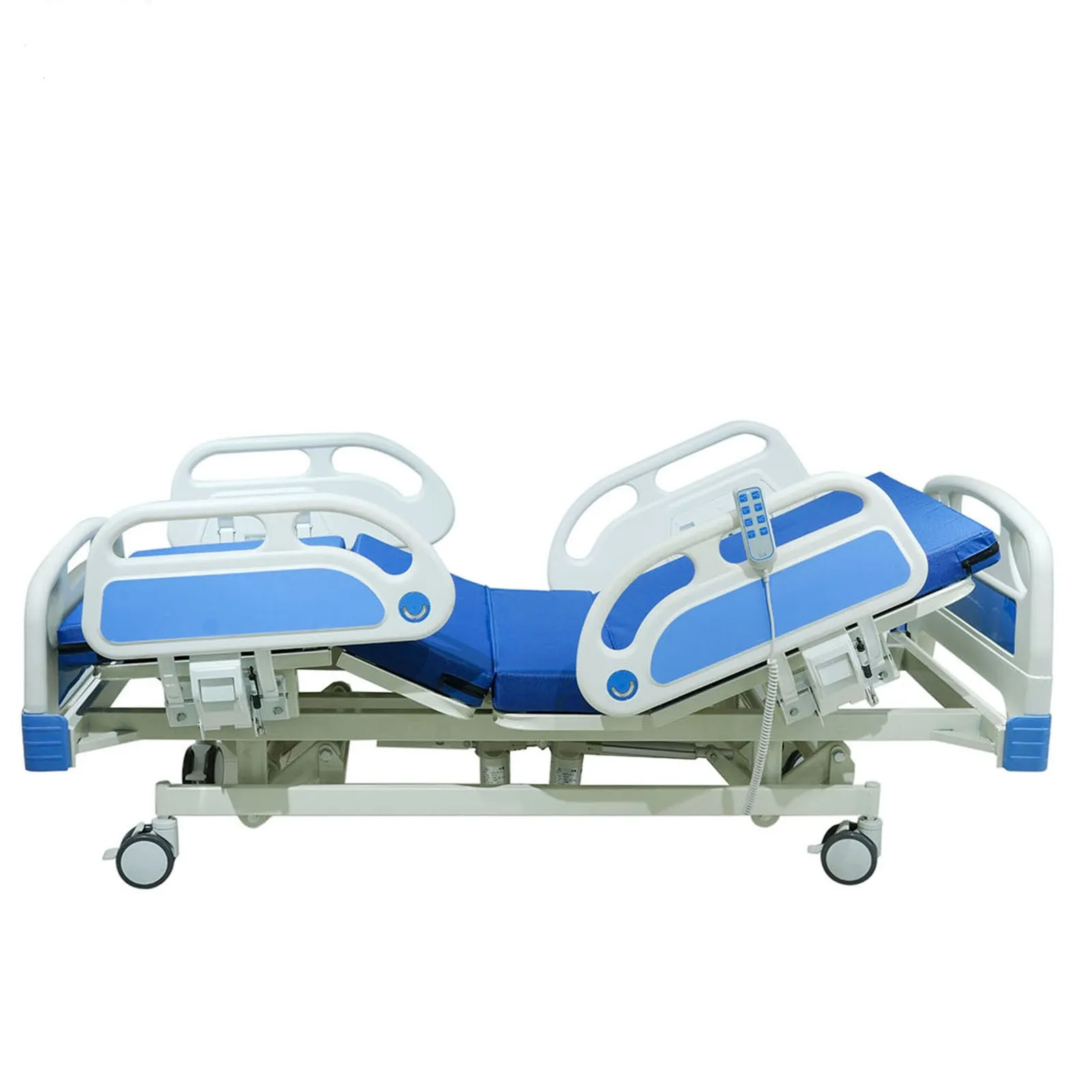
Our engineering team collaborates closely with clients to understand their needs and develop tailored solutions, ensuring optimal integration and performance within their existing healthcare infrastructure.
Application Case Studies: Enhancing Patient Care
Real-world applications demonstrate the tangible benefits of deploying advanced icu hospital bed systems. These case studies highlight how sophisticated design and robust functionality contribute to superior patient care and operational excellence.
Case Study 1: Major Metropolitan Hospital ICU Modernization
A large metropolitan hospital undergoing a comprehensive ICU upgrade faced challenges with older beds, which contributed to caregiver injuries and limited patient repositioning options. By integrating a fleet of our three-functional electric medical beds, the hospital reported a 25% reduction in nurse back injuries over the first year, attributed to the beds' ergonomic design and electric controls. Patient data showed a decrease in pressure injury incidence by 18%, largely due to the precise positioning capabilities and improved patient comfort. The hospital also noted increased efficiency in daily patient care routines due to the intuitive controls and integrated features of the icu hospital bed units.
Case Study 2: Regional Medical Center Emergency Department
A busy regional medical center's Emergency Department required highly durable and rapidly deployable beds to manage fluctuating patient volumes. Our beds, with their robust construction and central braking systems, allowed for quick and safe patient transfers and stabilization. The CPR quick-release function proved invaluable in several emergency situations, enabling medical teams to respond instantaneously. The easy-to-clean surfaces also significantly improved turnaround times between patients, crucial for maintaining hygiene and efficiency in a high-traffic environment.
These examples underscore the tangible benefits that advanced icu hospital bed technology brings to critical care settings, enhancing both patient safety and operational effectiveness.
Ensuring Trustworthiness: Certifications, Warranty, and Support
Trust is paramount in healthcare equipment procurement. We adhere to the highest standards of quality, compliance, and customer support for every icu hospital bed we supply.
- Authoritative Certifications: Our products are manufactured under strict adherence to international quality management systems, including ISO 13485 (Medical Devices – Quality Management Systems). Our products are CE marked, indicating compliance with European Union safety, health, and environmental protection requirements. We are also pursuing FDA registration for specific markets, ensuring global market access and compliance.
- Quality Assurance & Testing: Each bed undergoes a multi-point inspection and testing process, including electrical safety (IEC 60601-1), mechanical load testing (e.g., maximum safe working load of 250kg), and functional performance checks, ensuring flawless operation upon delivery.
- Warranty Commitments: We provide a comprehensive warranty package, typically covering 2-5 years for the bed frame and 1-2 years for electrical components, demonstrating our confidence in product durability. Specific warranty terms are provided with each quotation.
- Lead Time & Fulfillment: Standard lead times for our three-functional electric medical beds range from 30 to 45 business days, depending on order volume and customization. Urgent orders can often be accommodated with expedited production options. We maintain a robust supply chain to ensure timely delivery worldwide.
- Dedicated Customer Support: Our after-sales support team offers technical assistance, spare parts availability, and maintenance guidance. We provide remote troubleshooting and facilitate on-site support through our global network of partners, ensuring continuous operation of your critical equipment.
Frequently Asked Questions (FAQ) about ICU Hospital Beds
Q1: What is the typical service life of an electric icu hospital bed?
A1: With proper maintenance, a high-quality electric icu hospital bed typically has a service life of 10 to 15 years for the frame, while electrical components may require replacement after 5-7 years, depending on usage intensity and quality of components.
Q2: What factors influence the icu hospital bed cost?
A2: The icu hospital bed cost is influenced by factors such as the brand of electric motors (e.g., Linak vs. generic), material quality (steel gauge, ABS type), number of functions (3, 5, or more), integrated smart features (scales, alarms), and certifications (FDA, CE). Customization also impacts the final price.
Q3: Are these beds compatible with standard hospital mattresses?
A3: Our beds are designed to accommodate standard medical mattresses (typically 1950mm x 900mm). However, for optimal performance in an ICU, we recommend specialized pressure-redistributing or alternating pressure mattresses, which can be sourced concurrently.
Q4: What is the process for ordering an icu hospital bed for sale and getting it delivered?
A4: The process begins with a consultation to determine specific needs and customization. Following quotation approval and order confirmation, manufacturing commences. We provide regular updates on production status. Delivery typically involves freight shipping, with detailed logistics planning to ensure safe and timely arrival at your facility. Installation and training can also be arranged.
Q5: How do these beds contribute to infection control?
A5: The smooth, non-porous surfaces of ABS plastic components and the epoxy powder-coated steel frame are designed for easy cleaning and disinfection with standard hospital-grade solutions. Minimal crevices and detachable parts further reduce sites for microbial growth, significantly aiding infection control protocols.
Conclusion: The Future of Critical Care Bed Technology
The modern icu hospital bed is a cornerstone of critical care, representing a convergence of engineering excellence, patient-centric design, and advanced technology. As healthcare continues to evolve, these sophisticated medical devices will play an increasingly vital role in improving patient outcomes, enhancing caregiver safety, and optimizing operational efficiency within intensive care environments. Strategic investment in high-quality, technically advanced critical care beds is not merely a purchase; it is a commitment to providing the highest standard of patient care.
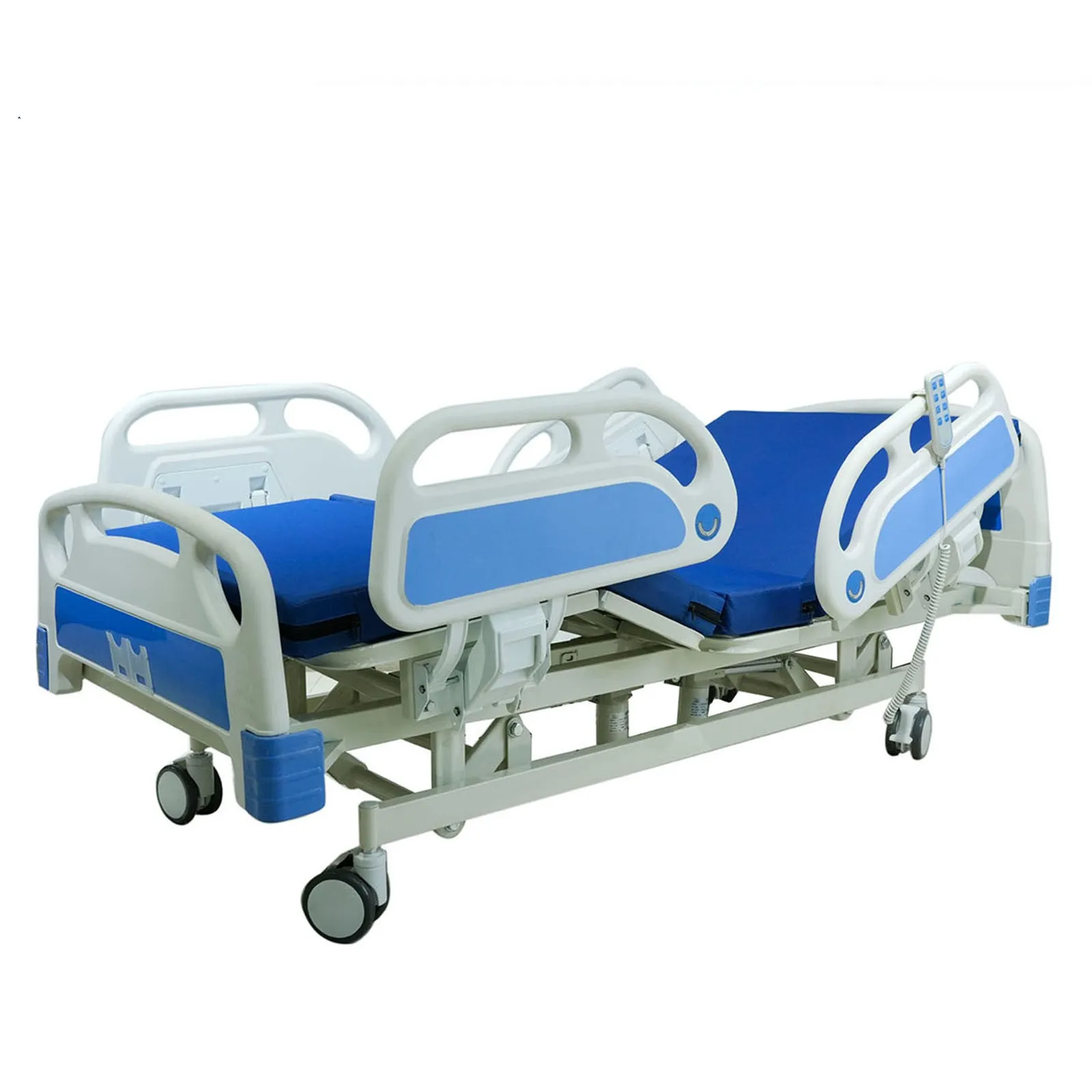
References
- International Organization for Standardization. ISO 13485:2016 Medical devices — Quality management systems — Requirements for regulatory purposes.
- U.S. Food & Drug Administration. Medical Devices. Available at: www.fda.gov/medical-devices
- European Commission. Medical Devices Regulation (EU) 2017/745.
- Occupational Safety and Health Administration (OSHA). Guidelines for Nursing Homes: Ergonomics for the Prevention of Musculoskeletal Disorders. Available at: www.osha.gov
- World Health Organization. Patient Safety. Available at: www.who.int/teams/integrated-health-services/patient-safety



